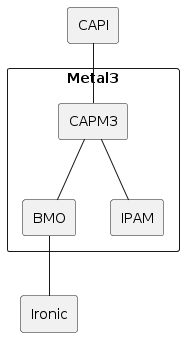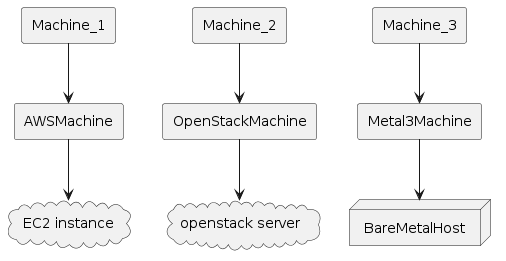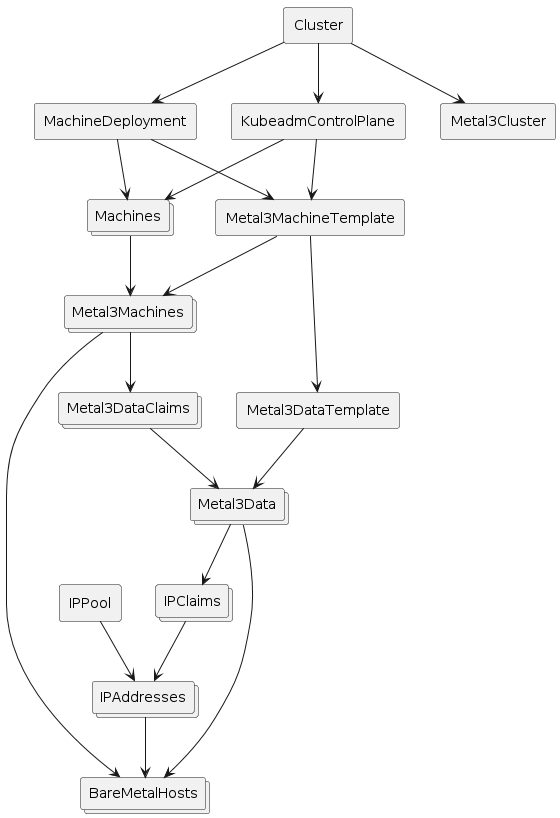Project overview
Metal3 consists of multiple sub-projects. The most notable are Bare Metal Operator, Cluster API provider Metal3 and the IP address manager. There is no requirement to use all of them.
The stack, when including Cluster API and Ironic, looks like this:

From a user perspective it may be more useful to visualize the Kubernetes resources. When using Cluster API, Metal3 works as any other infrastructure provider. The Machines get corresponding Metal3Machines, which in turn reference the BareMetalHosts.

The following diagram shows more details about the Metal3 objects. Note that it is not showing everything and is meant just as an overview.

How does it work?
Metal3 relies on Ironic for interacting with the physical machines. Ironic in turn communicates with Baseboard Management Controllers (BMCs) to manage the machines. Ironic can communicate with the BMCs using protocols such as Redfish, IPMI, or iDRAC. In this way, it can power on or off the machines, change the boot device, and so on. For more information, see Ironic in Metal3
For more advanced operations, like writing an image to the disk, the Ironic Python Agent (IPA) is first booted on the machine. Ironic can then communicate with the IPA to perform the requested operation.
The BareMetal Operator (BMO) is a Kubernetes controller that exposes parts of Ironic’s capabilities through the Kubernetes API. This is essentially done through the BareMetalHost custom resource.
The Cluster API infrastructure provider for Metal3 (CAPM3) provides the necessary functionality to make Metal3 work with Cluster API. This means that Cluster API can be used to provision bare metal hosts into workload clusters. Similar to other infrastructure providers, CAPM3 adds custom resources such as Metal3Cluster and Metal3MachineTemplate in order to implement the Cluster API contract.
A notable addition to the contract is the management of metadata through Metal3DataTemplates and related objects. Users can provide metadata and network data through these objects. For network data specifically, it is worth mentioning the Metal3 IP address manager (IPAM) that can be used to assign IP addresses to the hosts.
Requirements
- Server(s) with baseboard management capabilities (i.e. Redfish, iDRAC, IPMI, etc.). For development you can use virtual machines with Sushy-tools. More information here.
- An Ironic instance. More information here.
- A Kubernetes cluster (the management cluster) where the user stores and manages the Metal3 resources. A kind cluster is enough for bootstrapping or development.